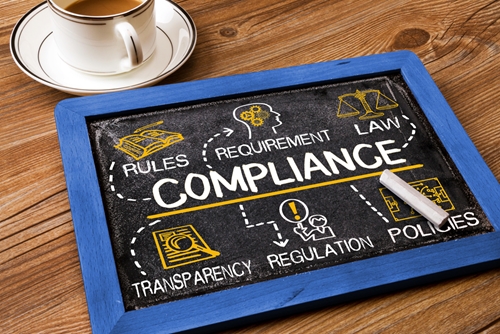
Merchants have no lack of responsibilities to consider, but data security is quickly becoming priority No. 1. It’s crucial for companies to make sure all bases are covered to give consumers the best experience possible. Customers today are increasingly aware of the potential for credit card fraud and how it could affect their finances. Many organizations are taking the necessary steps to ensure these cases are reduced and clients’ sensitive information is protected.
One such action is to become compliant with the Payment Card Industry Data Security Standards (PCI DSS). Although the guidelines are not mandatory under any government regulations, failure to adhere could cost companies a lot. It’s worth exploring the pricey effects of noncompliance and why it would benefit businesses to outsource.
Expensive fines
The PCI created the DSS as an actionable framework for merchants who process, store and transmit credit card data. There are 12 pillars companies should follow, ranging from a policy for data access to implementation of a firewall to encryption. Lack of adherence to these pillars – updated regularly to take new business threats and protection into consideration – could result in hefty penalties for organizations.
Although credit card companies will fine the acquiring bank directly, these institutions will usually pass this expense down to business owners. Not only could these fees cost merchants $5,000 to $100,000 for every month an organization is not compliant, it could affect the relationship with a merchant’s financial backer, according to the PCI Compliance Guide. Banks could ultimately choose to terminate the interaction or increase transaction fees.
 Outsourcing PCI compliance offers merchants many benefits.
Outsourcing PCI compliance offers merchants many benefits.Lost reputation
Consumers want to purchase from a company they can trust. That confidence extends past the good or service the business is providing to the safety customers feel when sharing their personal information. Knowing an organization is PCI compliant will only increase the trust clients have overall.
However, lack of adherence can make consumers question whether to buy from a specific merchant. In addition, companies that suffer from a data breach and are also not compliant could see a serious change in their reputation within the industry, according to Forbes. Customers affected by a hack are likely to not return in the future and to tell their friends and family about their experience. Businesses rely on their credibility to increase their visibility to clients, and without it their organization could suffer greatly.
Online fraud is an increasing concern
As more and more organizations move online to meet the need of ecommerce consumers, fraudsters have improved their methods of stealing valuable data from clients. With just the credit card number, expiration date and CVC code, thieves can make counterfeit purchases, potentially hurting a customer’s credit as well as calling businesses’ data security practices into question.
For companies with an online store, PCI compliance is just as important as brick-and-mortar retailers. Ecommerce payments, including card-not-present situations, still must follow the DSS to ensure their customers’ information is secure. According to the PCI’s 12 basic requirements, this means encryption of the transmission of cardholder data across public networks, as well as using and maintaining not only a firewall configuration, but an antivirus software.
For most organizations, this means outsourcing their online payments to a third-party website which lends a more secure process than a business may have on their own. This action can have many benefits for businesses wanting to keep their consumers’ data as protected as possible. Furthermore, companies that take these steps will be more trustworthy in customers’ eyes, leading them to continue making purchases through these enterprises and make others aware of the experience they’ve had.
“Third-party vendors can help companies maintain PCI compliance.”
Outsourcing can help
PCI compliance is just one of the many responsibilities merchants need to pay attention to. With so many obligations on their plate, it’s not uncommon for something this important to become less of a priority. When costly penalties and a loss of reputation are possible results, however, business owners need to weigh the risks and the benefits of adherence.
Luckily, entrepreneurs do have options when it comes to becoming and maintaining PCI compliance, while also juggling a million other tasks. Companies can outsource this duty to a third-party. These solutions will be hosted outside of a business’s IT environment, simplifying the standards for merchants, according to PCI Compliance Guide. In addition, these providers can help organizations become and maintain their PCI adherence. Outsourcing this important aspect cuts down on the possibility and price of penalties, keeps a company’s reputation in tact and introduces the best data security system for a business’s needs.
PCI compliance is a crucial element of a successful company. Consumers want to do business with an organization that demonstrates an attention to their protection and adherence to these standards do just that. While full implementation and attention to the guidelines can be difficult for merchants, outsourcing this responsibility will remove some of the pressure while ensuring companies remain compliant.









